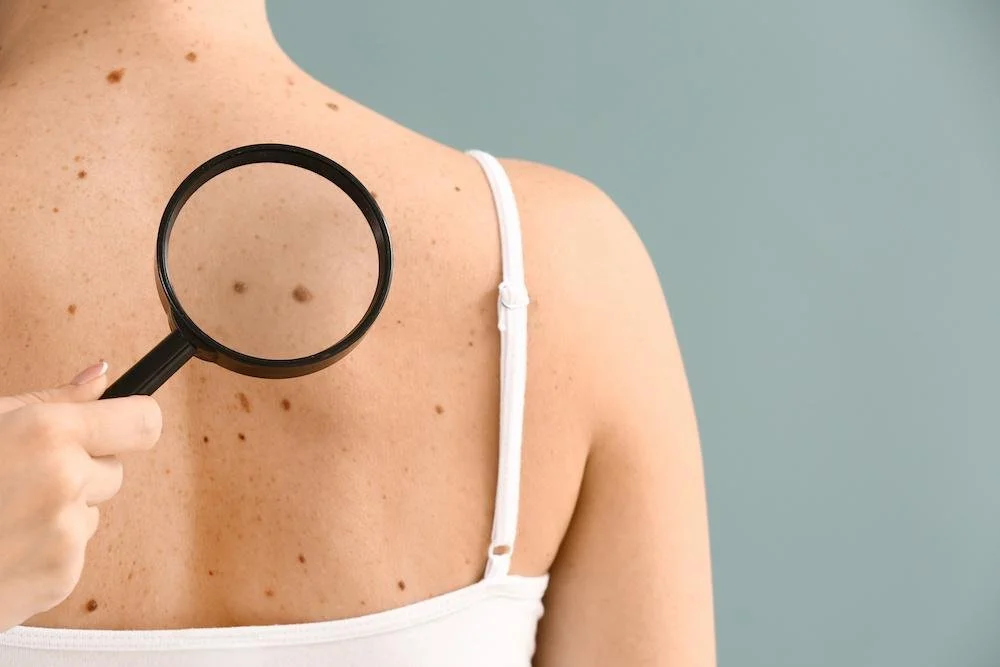Medford Dermatologist Answers: Top FAQs About Skin Health and Treatments
At Summit Dermatology in Medford, OR, we know that skin health is vital to overall wellness, and we’re here to provide you with the answers you need to take the best care of your skin. From seasonal skin care tips to treatment options for chronic conditions, here are some of the most frequently asked questions we hear from our patients in Medford—and our expert advice on each.
1. What’s the Best Way to Protect My Skin Year-Round?
In Medford, where we experience sunny summers and chilly, dry winters, your skin needs protection all year.
Sunscreen: Wear a broad-spectrum sunscreen with SPF 30 or higher daily, even on cloudy days.
Moisturize: In colder months, use a heavier moisturizer to combat dryness and protect the skin barrier.
Hydrate: Drink plenty of water to keep your skin hydrated from the inside out.
We recommend products designed for sensitive skin and encourage you to reapply sunscreen every two hours when outdoors.
2. How Often Should I Get a Skin Check?
Regular skin checks are essential for early detection of skin cancer. We generally recommend an annual skin exam for most patients, though those with a history of skin cancer, numerous moles, or a family history of melanoma should consider more frequent exams. Our team at Summit Dermatology can tailor a check-up schedule based on your individual risk factors.
3. What Treatments Do You Offer for Sun Damage and Age Spots?
Sun damage is a common concern, especially in sunny climates like Medford. We offer a range of treatments:
Chemical Peels: Gently exfoliate damaged layers of skin to reveal fresher, brighter skin.
Laser Therapy: Target age spots, sunspots, and other pigmentation issues with advanced technology.
Microneedling: Stimulates collagen production to improve skin texture and tone, reducing the appearance of sun damage.
We start with a comprehensive skin assessment to determine the best approach for your needs and desired results.
4. What Are My Options for Treating Acne?
Acne can affect people of all ages, and we understand how frustrating it can be. Treatments we offer at Summit Dermatology include:
Topical and Oral Medications: Prescribed to reduce inflammation, kill bacteria, or regulate skin cell turnover.
Chemical Peels and Facials: Target active acne and help minimize post-acne scarring.
Laser and Light Therapies: Kill acne-causing bacteria and reduce inflammation, particularly effective for resistant acne.
We’ll work with you to create a personalized treatment plan, combining these options for the best results.
5. Is There a Way to Treat Rosacea?
Yes! Rosacea is a chronic skin condition that can be managed with a combination of treatments:
Topical Medications: Reduce redness and inflammation.
Laser Treatments: Target visible blood vessels that cause the flushed appearance.
Lifestyle Adjustments: We’ll guide you on avoiding triggers like certain foods, temperature extremes, and stress.
Our dermatologists can assess your condition and suggest a routine that minimizes flare-ups, helping you feel more confident in your skin.
6. What Can I Do About Fine Lines and Wrinkles?
Aging gracefully doesn’t mean you have to accept every wrinkle! We offer a variety of treatments for fine lines and wrinkles:
Botox and Dermal Fillers: Smooth out fine lines and add volume to areas that have lost elasticity.
Chemical Peels and Microneedling: Promote collagen production and improve skin texture.
Laser Resurfacing: Reduces the appearance of wrinkles and revitalizes the skin.
We’ll help you decide which treatments best align with your aesthetic goals and skin type.
7. How Can I Treat or Prevent Skin Cancer?
Preventing and treating skin cancer is a top priority for us. Preventive steps include daily use of sunscreen, wearing protective clothing, and scheduling regular skin checks. If skin cancer is detected, we offer several treatment options:
Cryotherapy: Freezes off precancerous and cancerous cells.
Excision Surgery: Removes cancerous tissue with precision.
Mohs Surgery: A highly effective technique that removes cancerous cells layer by layer.
Our dermatologists at Summit Dermatology are here to provide compassionate care and support, from prevention to treatment.
8. Do I Need a Dermatologist for My Eczema or Psoriasis?
Yes! Eczema and psoriasis are complex conditions that benefit from professional care. We offer:
Topical and Systemic Medications: Reduce inflammation and control symptoms.
Light Therapy: A non-invasive option that reduces symptoms by slowing down skin cell growth.
Moisturizing Treatments and Recommendations: Help strengthen the skin barrier and reduce flare-ups.
Managing these chronic conditions can improve your quality of life, and we’re here to guide you on the best ways to keep symptoms under control.
9. What’s the Best Way to Get Rid of Scars?
We understand that scars can be a source of insecurity, and there are effective treatments to minimize their appearance:
Laser Therapy: Breaks down scar tissue and promotes healthy skin regeneration.
Microneedling: Reduces the visibility of scars by stimulating collagen production.
Chemical Peels: Gradually remove the outer layer of scar tissue, revealing smoother skin.
During a consultation, we’ll discuss your options and create a plan to reduce the appearance of scars in a safe, effective way
Why Choose Summit Dermatology in Medford, OR?
At Summit Dermatology, we’re committed to providing exceptional care that’s tailored to your needs. Whether you have questions about routine skin care or need treatment for a specific condition, our team is here to support your skin health journey every step of the way.
If you have more questions or would like to schedule a consultation, contact Summit Dermatology today. We’re here to provide you with answers, treatment options, and peace of mind for all your skin care needs!




